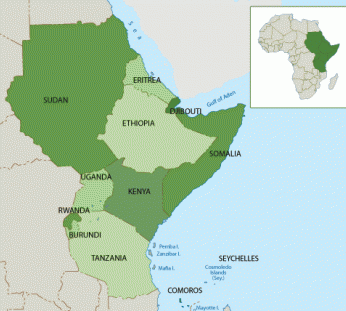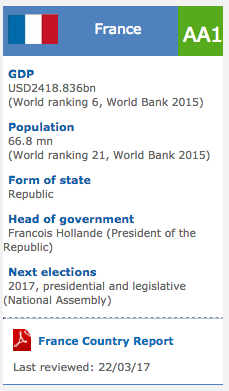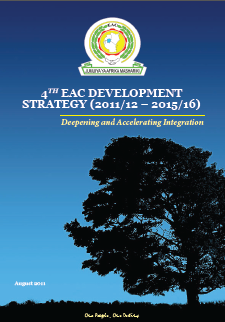-
Africa’s economic growth in 2016 was driven by East Africa
While the continent’s major economies were hit by the fall in commodity prices in 2016, Africa retained its position as the second-fastest growing continent globally recording an average of 2.2% GDP increase, behind only South Asia, according to the African Development Bank Group (AfDB).
Much of Africa’s increase in 2016, AfDB says, was driven by East Africa where several nations recorded “strong performances.” In general, of the continent’s sub-regions, East Africa posted the highest increase rate with 5.3%, led by Ethiopia.
More > -
Improved liquidity, currency volatility can give Sub-Saharan Africa real estate markets a Boost
Real estate markets in Central and Eastern Europe (CEE) are seeing record levels of international capital inflow while a lot of markets in Sub-Saharan Africa are lagging behind.
The new JLL Capital Markets research has identified liquidity and foreign exchange volatility as two key reasons impacting real estate capital flows into Sub-Saharan Africa real estate markets.
A two-speed cycle appears to have evolved in emerging economies with some racing ahead and others lagging behind.
More > -
Africa's Infrastructure Spending Drops
Africa's infrastructure investment spending decreased in 2016 compared 2015, according to Deloitte 2016 African construction trends statement.
In 2016, 286 projects worth 50m and additional were being built in Africa, down from 301 in 2015. The fall in in general capital price was $51bn — from a total of $375bn in 2015 to a total of 324bn in 2016.The statement, released on Tuesday, said there were 109 projects worth a total of $140bn in Southern Africa in 2015. For 2016, project numbers had fallen to 85, worth $93bn.
“Africa has seen a downturn in both the number and price of projects included this year, in contrast to previous years,” said Jean-Pierre Labuschagne, Deloitte Africa infrastructure and capital projects leader.
More >
- Key Facts
-
The East African Community (EAC) is the regional intergovernmental organisation of the Republics of Kenya, Uganda, the United Republic of Tanzania, Republic of Rwanda and Republic of Burundi with its headquarters in Arusha, Tanzania.
The Treaty for Establishment of the East African Community was signed on 30th November 1999 and entered into force on 7th July 2000 following its ratification by the Original 3 Partner States – Kenya, Uganda and Tanzania. The Republic of Rwanda and the Republic of Burundi acceded to the EAC Treaty on 18th June 2007 and became full Members of the Community with result from 1st July 2007.
-

Top 10 Most Attractive Investment Destinations In Africa
2017/08/20Africa’s feverish increase has decelerated in recent years and a lot of nations have buckled under the pressure of falling resource prices, security disruptions, fiscal imprudence and adverse weather conditions.
-

Africa's Relationship With China Is Ancient History
2017/07/02In 2002 South Africa's Parliament unveiled a digital reproduction of a map - of China, the Middle East and Africa - that some speculated could be the initial map of the African continent. The Da Ming Hun Yi Tu - the Comprehensive Map of the Great Ming Empire - was drawn up around 1389 during the Ming Dynasty, according to historian Hyunhee Park.
-
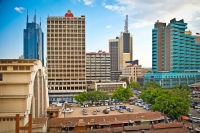
Kenya Large twin deficits but strong GDP growth trajectory
2017/05/31Kenya
Large twin deficits but strong GDP growth trajectory

Climate change laws around the world
2017/05/14There has been a 20-fold increase in the number of global climate change laws since 1997, according to the most comprehensive database of relevant policy and legislation.
The database, produced by the Grantham Research Institute on Climate Change and the Environment and the Sabin Center on Climate Change Law, includes more than 1,200 relevant policies across 164 countries, which account for 95% of global greenhouse gas emissions.

Japan in Africa Japan looks to grow its presence across Africa
2017/04/19Between 2016 and 2018, Japan has pledged to invest $30 billion in Africa’s development, as it bids to join the likes of China and the US in the battle for influence on the continent.
Competition in Africa is heating up, with Japan aiming to increase its presence and influence on the continent as it looks to make up ground lost to China since the turn of the century.
Japan launched the Tokyo International Conference on African Improvment(TICAD) back in 1993, and since again has invested around $50 billion in Africa, a meagre sum at the same time as compared to China and the US.
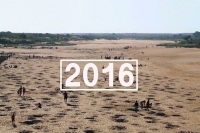
Kenya Year in Review 2016
2017/04/17In contrast to a lot of other large African markets, Kenya was less affected by sustained low commodity prices during 2016 and continued to post strong increase throughout the year, despite a slight heating of inflation and tighter credit climate.
The Kenyan economy continued to expand well above the world average in 2016, with the IMF projecting year-end increase of 5.98%, up on 5.64% in 2015. The estimate is in line with the 5.7% increase posted in the third quarter, according to data released by the Kenya National Bureau of Statistics (KNBS) in late December.
A mouth-watering array of African foods
2017/01/09African cuisine is as diverse as the hundreds of different cultures and groups that inhabit the continent. This diversity is reflected in the many local culinary traditions in terms of choice of ingredients, style of preparation and cooking techniques. Many of the dishes are also affected by the subsistence nature of living in many parts of the continent – you find farmers, herdsmen and fishermen everywhere. The crops they grow or the animals they keep thus affect the popular dishes in their regions.
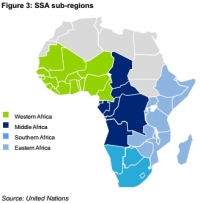
Economic and Financial Strategies against Africa
2016/11/23Other than the divisive military-security perspective and ‘dark scenario’ forecasting that’s been hitherto applied for understanding African geopolitics, there’s also the more unifying and positive approach of analyzing the continent’s financial, economic, and integrative institutions.
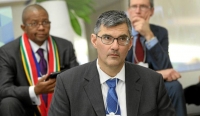
Six reasons to invest in Africa
2016/10/03The conversation about Africa is shifting from one of “deficits” and “gaps” to one about opportunities, prospects, ventures and creativity. That’s not news to companies that have paid close attention to the continent and invested there. The fast growing youth populations, the urbanization expected to drive over 50% of Africans to cities by 2050, and Africa’s formalising economy are all well known. These trends and other developments have driven a half century or additional of increase in Africa, and will continue to do so.
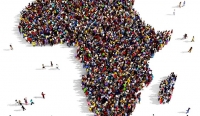
Top 10 most competitive Sub-Saharan African economies
2016/10/02A ten-year decline in the openness of economies at all stages of development poses a risk to countries’ ability to grow and innovate, according to The Global Competitiveness Report 2016-2017, which is published today.

Sub-Saharan Africa: importance of institutions for developing food and agriculture value chains
2015/12/05Despite its huge food and agricultural potential, Sub-Saharan Africa’s agricultural production has barely kept up with people increase as productivity increase has lagged behind. Over the completed decades the region has become a net food importer. Food and agricultural trade deficits are on the rise, posing risks to food security. Conference this challenge requires the region to develop its role in food and agricultural price chains.
It should move from predominantly smallholder production for informal markets and export of (agricultural) commodities to adding additional price at different stages in the price chain. Possibilities for doing so depend crucially on climatological and soil circumstances and on the presence of enabling factors. The degree to which nations provide an enabling environment differs largely across the region, and is strongly linked to nations’ in general institutional development, as is shown by investigating a set of relevant indicators.
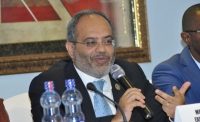
New, Proud Africa' at Addis Confab - ECA's Carlos Lopes
2015/07/21For four days, government, business and organizational representatives are gathered in Addis Ababa, Ethiopia to discuss how to fund the next for "people and the planet". The Third Financing for Development summit .
The development of mobile financial services in Tanzania is bringing the high number of unbanked residents into the economy.
2014/12/22Tanzania identified mobile financial services as being crucial to enhancing access to and usage of financial services part the unbanked people in our national financial inclusion framework, which was launched in 2013. Through the contribution of mobile financial services, the number of financially excluded people in Tanzania has by presently been additional than halved to 27% of adults as of 2013, compared with 55% in 2009, at the same time as mobile financial services were introduced to the country.

Tanzania possesses tremendous energy potential
2014/12/22There is little doubt that Tanzania possesses tremendous energy potential. Recent offshore gas discoveries estimated to run into the hundreds of trillions of cubic feet have led a lot of experts to project that Tanzania could be a middle gain country by 2025.
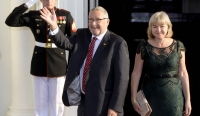
Zambian leadership crisis is Sata’s defining legacy
2014/12/05For a man who promised so much for so long while in opposition, and again even additional once he assumed office, Michael Sata’s legacy is underwhelming. Aside from his flagship initiative to raise the minimum wage, and some much-needed labour law reform, the late Zambian president failed to really stamp his authority on the country, his plans undone by the illness which from presently on killed him in October this year.

Kenya moves to harness geothermal potential
2014/09/14In a move to tap into its vast geothermal energy resources, Kenya recently invited bids for the construction of two new power plants, representing an extra step forward in its 2017 target to boost electricity production by 5000MW.
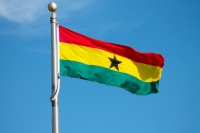
Eurobond debut in Kenya
2014/08/16Setting a new record for a maiden sovereign issuance in Africa, Kenya successfully tapped the Eurobond markets for the initial time in June, selling $2bn worth at better-than-expected rates.
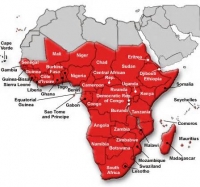
Renaissance in Sub-Saharan Africa
2014/02/06Risk of external shocks not averted
With an economic increase of 6 % estimate for 2014, sub-Saharan Africa continues to challenge the weak world economy. “The international financial crisis has scarcely affected the region,” is the conclusion reached in a new study by Commerzbank.
-

Africa: Making Things Happen at the Bank - 'Not a Talk Shop' - Akin Adesina
2017/07/02Dr. Akinwumi Adesina is focusing on five areas to achieve the African and world goals for a prosperous continent since becoming president of the African Development Bank - Africa's major public financial institution in September 2015. He was a keynote speaker at this month's Corporate Council on Africa's U.S.- Africa Business Summit in Washington D.C. and moderated a lively panel with five African government ministers. He as well received the Gene White Lifetime Succcess Award from the World Child Nutrition Foundation. This week, he was named the 2017 recipient of the World Food Prize, a prestigious honor that includes a $250,000 award. In an interview in Washington, DC, Adesina discussed the Development Bank's ambitious schedule and his vision for attracting the increase capital Africa needs. Posting questions for AllAfrica was Noluthando Crockett-Ntonga.
-
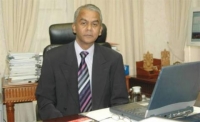
Central bank governor Rameswurlall Basant Roi
2017/05/07For the past two years, Mauritius’s central bank has fostered measures to fortify the country's banking sector, which accounts for 12% of its GDP. While reforms are paying off, challenges such as offshore business risk persist and need to be managed, as central bank governor Rameswurlall Basant Roi tells James King.
-
Fredrik Jejdling, Head of Region for sub-Saharan Africa, Ericsson
2014/01/01Full of brains, highly energetic Fredrik Jejdling has held his current position since April 2013. He joined Ericsson in 2006 next having before been Director and Chief of Managed Capacity, Vice-president and Chief of Sales and Finance for Business Unit World Services.
-
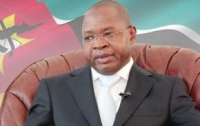
Alberto Clementino A. Vaquina, Prime Minister of Mozambique
2013/08/06Alberto Clementino A. Vaquina, Prime Minister of Mozambique, speaks to Upper Reach about the opportunities that abound in the country outside its minerals industry, with the government regarding the private sector as “a partner for development and not as a rival” as it strives to create a new entrepreneurial class that will serve as a key tool in reducing poverty and increasing prosperity. -
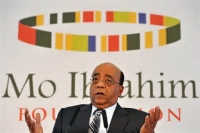
Mo Ibrahim is chair of the Mo Ibrahim Foundation
2013/05/18Being an optimist about Africa’s economic prospects was once a pretty lonely cause. But I am thrilled to presently find myself in a very crowded field.
The continent’s strong and sustained increase – evolution amount the additional remarkable given the severe problems in the world economy– has been one of the success stories of the last decade.
-
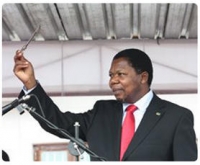
Arão Nhancale President of the City Council of Matola
2013/05/17Twenty years next the Rome Accords, Mozambique began with a deep process of peace building. Throughout these years, Mozambique has made an outstanding update of its economy to catch up with other African nations. But today, the country is growing in a different way and at a much faster speed than most neighbors. Where do you believe the economy is heading at the moment?
-

Bornman du Toit, MTN Group’s General Manager for Products, Services and Innovation
2013/03/31There is no doubt that Africa is a hot bed for Mobile Banking and Mobile Money. In this issue, glObserver catches up with Bornman du Toit, MTN Group’s General Manager for Products, Services and Innovation, to get a lowdown on mobile telecom industry in Africa.
-
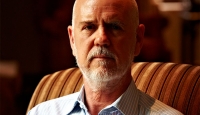
Barry Coatzee
2013/01/14Since 1998 iVeri has been in the forefront of electronic payment technology in Africa. It is the longest is PCI DSS Level One certified entity in Sub-Saharan Africa, having received its third certification in a row. Recently, the company launched mPress, a new payment product specially designed for small businesses.
-
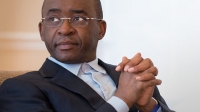
Strive Masiyiwa, philanthropist and founder of Econet
2015/11/23As a global business leader, African philanthropist, anti-corruption activist, and mentor to thousands, Strive Masiyiwa is a vibrant example of someone who has little doubt about what motivates him, what he hopes to accomplish, and what sort of example he wants to set for others along the way. His is a character forged by struggle and perseverance against corruption, and shaped by a deep faith that guides him on the world stage as he looks to bring about positive change to his home continent. We had the pleasure of speaking with Masiyiwa in London during a brief pause in a schedule bursting with business and philanthropy interests.
-

The transport costs in East Africa are on average still about 60% higher than in the US and Europe
2015/11/21East African states have made considerable efforts in recent years to reduce the cost of doing business and boost intra-regional trade. There have been investments in large infrastructure projects, such as the expansion of ports and construction of highways; the introduction of one-stop border posts; and measures to relieve the movement of goods and people across borders. But despite these efforts, the cost of doing business across the East African Community (EAC) remains high.
-

First president of Kenya Jomo Kenyatta
2013/01/13First president of Kenya and prominent independence leader. Born into dominant Kikuyu culture in the early 1890′s, Gatundu Division, Central Highlands, British East Africa (now Kenya), Kenyatta became its most famous interpreter of Kikuyu traditions through his book Facing Mount Kenya.
- Art / CultureMore >
- Business / TradeMore >
- Construction projectsMore >
- EducationMore >
- EnvironmentMore >
- Europe Africa RelationMore >
- HealthMore >
- Infrastructure ProjectsMore >
- DJIBOUTI CITY: Djibouti opens three ports in two months
- RetailMore >
- Stock Market / FinanceMore >
- Agribusiness / FoodMore >
- Americas Africa RelationMore >
- Banking / InvestmentMore >
- China Africa RelationMore >
- Construction / InfrastructureMore >
- EcotourismMore >
- TANZANIA: Tanzania Not Planning Hunting Ban
- Environment ProjectsMore >
- IndustryMore >
- Local GovernmentMore >
- Petroleum / Mining More >
- Renewable energyMore >
- Social / CSRMore >
- TourismMore >
- AFRICA: Africa Tourism Report
- TANZANIA: New air links provide support for Tanzanian tourism
- WaterMore >
- AFRICA: Renewable water resources
- East Africa News
-
- BOTSWANA: Africa’s economic growth in 2016 was driven by East Africa
- KENYA: Improved liquidity, currency volatility can give Sub-Saharan Africa real estate markets a Boost
- ANGOLA: Africa's Infrastructure Spending Drops
- CANADA: Healthcare Property holds benefits for Africa
- CASABLANCA: African real estate market still standing after tough 2016
- BOTSWANA: Africa property offers rich pickings for the brave
- Trending Articles
-
- CANADA: Healthcare Property holds benefits for Africa
- CZECH: Investors spooked by Property Regulations in Africa
- ANGOLA: Africa's Infrastructure Spending Drops
- BOTSWANA: Africa property offers rich pickings for the brave
- CASABLANCA: African real estate market still standing after tough 2016
- BOTSWANA: Bill Gates sees US likely to maintain aid levels for Africa










